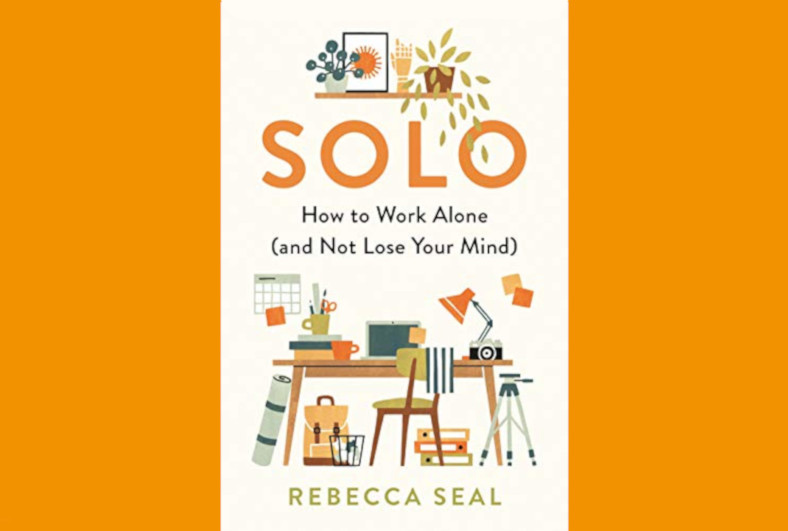Journalist as Author: Rebecca Seal – SOLO: How To Work Alone (and Not Lose Your Mind)

Working from home on your own and starting to lose it a little? Author, writer and Sunday Brunch expert Rebecca Seal knows just what you’re going through. With a decade of experience as a freelancer for publications including The Guardian, The Daily Telegraph and Conde Nast Traveller, her latest book SOLO: How To Work Alone (and Not Lose Your Mind) explores how to make working alone work for you.
Can you introduce your book in a couple of sentences?
I wrote SOLO: How To Work Alone (And Not Lose Your Mind) because I needed it – I had been freelance for five years when I had the idea, and was having quite a hard time coping with working by myself. When I couldn’t find a book to help me, I realised I had to write one. It took a few years (I had two kids in between the idea and publishing!) but I got there in the end, and now the book is designed to be a toolkit full of questions to help solo workers figure out who they are and what they need at work, as well as practical advice from academics, scientists, experts and other solo workers who shared their stories with me.
Are you working on another book, or do you have other projects under way?
Yes, I am working on another cookbook for the LEON restaurant group – this will be my fifth co-authoring role with LEON. Other projects include my usual round of journalism – I’ve got a feature for Sainsbury’s magazine under way at the moment, as well as another for The Telegraph.
Can you offer any advice to other journalists thinking about writing a book like SOLO?
Get an agent first and try and ensure they get you a decent book deal. It took almost half a year, more or less full time, to write SOLO, and I definitely missed out on other jobs and had to turn work down in order to meet the deadline. Book deals – unless you’re really lucky – don’t ever tend to be huge these days, but an agent should be able to get you enough money to fund the time you will be working on a book. The other thing to remember is that although it may feel really hard to turn work down in favour of meeting a book deadline, most of your clients will understand (it’s good to let people know in advance, if you can) and will come back after the deadline has passed. And in addition, books do help generate work in the future, so you can think of it as something of an investment in work down the line.
What books are you reading right now, or about to pick up?
I’m reading Underland by Robert MacFarlane, which is an extraordinary book about spaces underground, both manmade and natural. In the part I just read, he had spent several days beneath Paris, wriggling through tiny gaps in the caves, tunnels and catacombs which lace the ground under the city.
Are there any other examples of your everyday journalism that you’re especially proud of or would just like to share?
I am really proud of this piece for The Guardian, written partly during lockdown, about the pandemic and food waste – it was incredibly complex and detailed.
In terms of the work I’ve done which has had the most impact, this has been the most important. It’s a piece about my experience of having IVF and I still, five years on, get emails and messages from strangers saying it’s given them hope, or expressed their experience of infertility in a way that they could not, or allowed them to have conversations with the people around them about what they’re going through.
Are you available for freelance commissions, speaker opportunities or other roles?
Yes, all of the above! In particular, I am really enjoying giving talks to companies about how to support their newly remote workers – it turns out that because I now know so much about how workers can thrive in relative isolation, I have some expertise which is really useful.
If I’m a PR professional with a story or another opportunity for you, how should I get in touch?
Feel free to drop me an email if you’ve got a story that falls into my areas of expertise (food, drink, work). I get hundreds every day, so please don’t be offended if I can’t respond to everything I receive – I have to do the work which pays the bills, and sadly email does not.
SOLO: How To Work Alone (And Not Lose Your Mind) (17.09.2020, Souvenir Press) is available here. Follow Rebecca Seal on Twitter @RebeccaSeal.